PLENARIES
We are pleased to confirm the following Plenary speakers (in alphabetical order):
Philippe Goupil
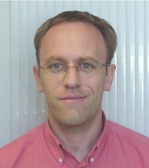
Title:
Guidance Navigation and Control of future aircraft: an industrial vision
Abstract:
Air transport is a major contributor to global economic prosperity. The sector is the cornerstone of global commerce with a myriad of economic and societal benefits. Aviation plays a vital role in facilitating economic growth, particularly in developing countries. A few decades from now, and given the anticipated increase in traffic volume and continuing expansion of the world’s aviation network with greater aviation connectivity, improving air transport in a sustainable way will be a serious worldwide challenge. From an aircraft point of view, this will need technological breakthroughs in the design of all aircraft systems: airframes, propulsion systems, airborne systems, software and hardware, communications, navigation, control and guidance, etc.
This semi-plenary session proposes to focus on the Guidance Navigation and Control (GNC) of future aircraft by giving an industrial perspective by an aircraft manufacturer. Ranging from the current industrial state of practice to the future GNC: advanced Fault Detection and Diagnosis, full-time all-event available control and innovative cockpit, this presentation will be exemplified through different past and present projects dedicated to this topic, among them some recent and current European projects. This talk will as well show the importance to bridge the gap between basic research levels and industrial needs. Some concrete examples will demonstrate how advanced methods advocated by the academic community have been finally applied on some of the most modern aircraft.
Bio:
Dr. Philippe Goupil, 42 years old, received a PhD degree in signal processing from the French Polytechnic National Institute, Toulouse. He has acquired a strong experience at Airbus design office in Flight Control System through several programs (A340, A380, A400M…). He is mainly in charge of R&T activities for developing advanced fault detection and diagnosis algorithms. He has been involved in the European GARTEUR Flight Mechanics Action Group FM-AG16 (2004-2008) on Fault Tolerant Control (FTC) and in the French project SIRASAS which dealt with innovative and robust strategies for spacecraft autonomy (2007-2010). He was the AIRBUS representative in the FP7 European Project ADDSAFE (2009-2012) which focuses on Advanced Fault Detection and Diagnosis towards a more Sustainable Flight Guidance and Control. Dr. Goupil is currently the AIRBUS focal point in the FP7 European Project RECONFIGURE (2013-2015) which deals with aircraft GNC technologies that facilitate the automated handling of off-nominal events. He is the author or co-author of 15 industrial international patents and of more than 40 conference or journal articles. He has been the industrial supervisor of three PhD students. Philippe Goupil is a member of two IFAC Technical Committees: Aerospace and Fault Detection, Supervision and Safety for Technical Processes. He served many time as IPC member and reviewer for several IFAC conferences and journal.
Karl Henrik Johansson
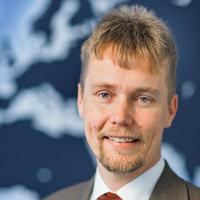
Title:
Optimizing Cooperative Driving for Road Goods Transportation
Abstract:
Goods transportation is of outmost importance for our society and is continuously increasing. Already today, goods transportation on roads accounts for about 23% of CO2 emissions from all fossil fuel combustion and 15% of all greenhouse gas emissions, according to a recent study by the International Transport Forum. Despite the influence the transportation system has on our energy consumption and the environment, road transportation is mainly done by individual long haulage trucks with no real-time coordination. In this presentation, we will discuss how modern information and communication technology supports a future integrated goods transportation system where fleet of trucks are coordinated to travel together in vehicle platoons. From the reduced air drag, platooning trucks traveling close together can save about 10% of their fuel consumption. Control and estimation challenges and solutions on various level of this transportation system will be presented. It will be argued that a system architecture utilizing vehicle-to-vehicle and vehicle-to-infrastructure communication enable receding horizon optimal control of individual trucks as well as optimized platoons and fleets of platoons. Experiments done on test trucks will illustrate system performance and safety requirements. Some preliminary results from a large-scale evaluation currently being performed on the highway road network in Northern Europe will also be discussed. The presentation will be based on joint work with collaborators at KTH and at the truck manufacturer Scania.
Bio:
Karl Henrik Johansson is Director of the KTH ACCESS Linnaeus Centre and Professor at the School of Electrical Engineering, Royal Institute of Technology, Sweden. He is a Wallenberg Scholar and has held a six-year Senior Researcher Position with the Swedish Research Council. He is Director of the Stockholm Strategic Research Area ICT The Next Generation. He received MSc and PhD degrees in Electrical Engineering from Lund University. He has held visiting positions at UC Berkeley (1998-2000) and California Institute of Technology (2006-2007). His research interests are in networked control systems, hybrid and embedded system, and applications in transportation, energy, and automation systems.
He has been a member of the IEEE Control Systems Society Board of Governors and the Chair of the IFAC Technical Committee on Networked Systems. He has been on the Editorial Boards of several journals, including Automatica, IEEE Transactions on Automatic Control, and IET Control Theory and Applications. He is currently on the Editorial Board of IEEE Transactions on Control of Network Systems and the European Journal of Control. He has been Guest Editor for special issues, including the one on "Wireless Sensor and Actuator Networks" of IEEE Transactions on Automatic Control 2011 and a current one on "Control of Cyber-Physical Systems" of the same journal.
He was the General Chair of the ACM/IEEE Cyber-Physical Systems Week 2010 in Stockholm and IPC Chair of many conferences. He has served on the Executive Committees of several European research projects in the area of networked embedded systems. In 2009, he received the Best Paper Award of the IEEE International Conference on Mobile Ad-hoc and Sensor Systems. In 2009, he was also awarded Wallenberg Scholar, as one of the first ten scholars from all sciences, by the Knut and Alice Wallenberg Foundation. He was awarded an Individual Grant for the Advancement of Research Leaders from the Swedish Foundation for Strategic Research in 2005. He received the triennial Young Author Prize from IFAC in 1996 and the Peccei Award from the International Institute of System Analysis, Austria, in 1993. He received Young Researcher Awards from Scania in 1996 and from Ericsson in 1998 and 1999. He is a Fellow of the IEEE.
Vijay Kumar
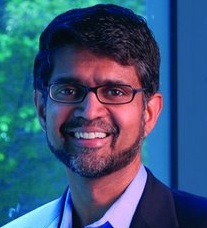
Title:
Aerial Robot Swarms
Abstract:
Autonomous micro aerial robots can operate in three-dimensional, indoor and outdoor environments, with applications to search and rescue, first response and precision farming. I will provide an overview of our work, and describe the challenges in developing small, agile robots and our recent work in the areas of (a) control and planning, (b) state estimation and mapping, and (c) coordinating large teams of robots.
Bio:
VIJAY KUMAR is the UPS Foundation Professor in the School of Engineering and Applied Science at the University of Pennsylvania, and on sabbatical leave at White House Office of Science and Technology Policy where he serves as the assistant director for robotics and cyber physical systems. He received his Bachelors of Technology from the Indian Institute of Technology, Kanpur and his Ph.D. from The Ohio State University in 1987.
He has been on the Faculty in the Department of Mechanical Engineering and Applied Mechanics with a secondary appointment in the Department of Computer and Information Science at the University of Pennsylvania since 1987. Dr. Kumar served as the Deputy Dean for Research in the School of Engineering and Applied Science from 2000-2004. He directed the GRASP Laboratory, a multidisciplinary robotics and perception laboratory, from 1998-2004. He was the Chairman of the Department of Mechanical Engineering and Applied Mechanics from 2005-2008. He then served as the Deputy Dean for Education in the School of Engineering and Applied Science from 2008-2012. Dr. Kumar is a Fellow of the American Society of Mechanical Engineers (2003), a Fellow of the Institution of Electrical and Electronic Engineers (2005) and a member of the National Academy of Engineering (2013).
Dr. Kumar's research interests are in robotics, specifically multi-robot systems, and micro aerial vehicles. He has served on the editorial boards of the IEEE Transactions on Robotics and Automation, IEEE Transactions on Automation Science and Engineering, ASME Journal of Mechanical Design, the ASME Journal of Mechanisms and Robotics and the Springer Tract in Advanced Robotics (STAR). He is the recipient of the 1991 National Science Foundation Presidential Young Investigator award, the 1996 Lindback Award for Distinguished Teaching (University of Pennsylvania), the 1997 Freudenstein Award for significant accomplishments in mechanisms and robotics, the 2012 ASME Mechanisms and Robotics Award, the 2012 IEEE Robotics and Automation Society Distinguished Service Award and a 2012 World Technology Network Award. He has won best paper awards at DARS 2002, ICRA 2004, ICRA 2011, RSS 2011, and RSS 2013, and has advised doctoral students who have won Best Student Paper Awards at ICRA 2008, RSS 2009, and DARS 2010.
Michael Metzger
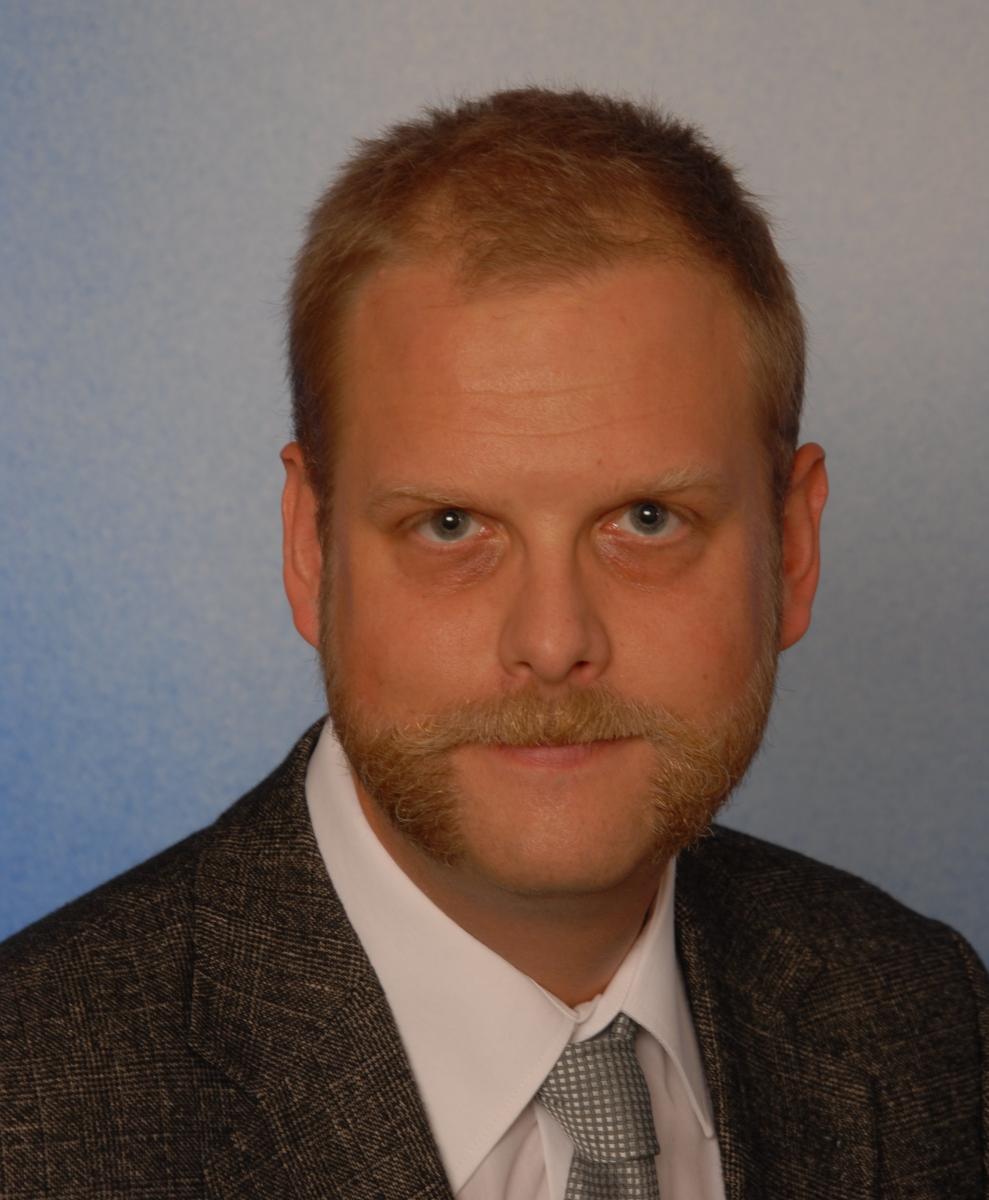
Title:
Energy Management, Voltage and Frequency Control for Smart Grids -- A Technology Providers View
Abstract:
Smart Grids are one of the cornerstones for our future power system guaranteeing sustainability, cost efficiency and security of supply. With respect to sustainability they help to increase the share of power generation based on renewable sources. The crucial point with integration of renewable plants into the existing grid infrastructure is their distributed and volatile character. Smart Grids help to minimize necessary extension of the grid infrastructure, resulting in minimal costs. The security of supply can be held constant or even increased using Smart Grid concepts like Virtual Power Plants, Demand Response or Microgrids. The topic Smart Grids is very broad and has at least three technology pillars: control systems, power engineering, information and communication technology. All are equally important, but the control systems part is the crucial one, thinking about power system stability and performance. This semi-plenary talk gives an overview about the challenges caused by the integration of renewable and distributed energy resources and answers the question how control technology contributes to the solution. This is done from the perspective of a company providing products and solutions. At the moment the Smart Grid discussion often focuses on the necessary information and communication platforms. When it should comes to real business, one has to talk about the functionality the customer is willing to pay for. Innovations here are often based on new control and operation concepts. Some results from first field tests are provided.
Bio:
Dr. Michael Metzger, 42 years old, received a PhD degree in process control at the University of Erlangen-Nuremberg and a Master in applied mathematics at the Technical University Munich, Germany. He has acquired a strong experience in process and energy automation at the Fraunhofer Institute for Integrated Systems and Device Technology and Siemens for more than ten years in several positions. He is mainly in charge of R&D activities and pilot projects dealing with model based system design and control concepts. Currently Dr. Metzger is the principal expert for power management, smart grids and decentralized energy systems at the Siemens Research and Technology Center, Munich. Michael Metzger is a member of two committees of the German the Association for Electrical, Electronic & Information Technologies (VDE): Process Control and Advanced Control Techniques, Control of Synchronous Machines and Transformers.
John T. Wen
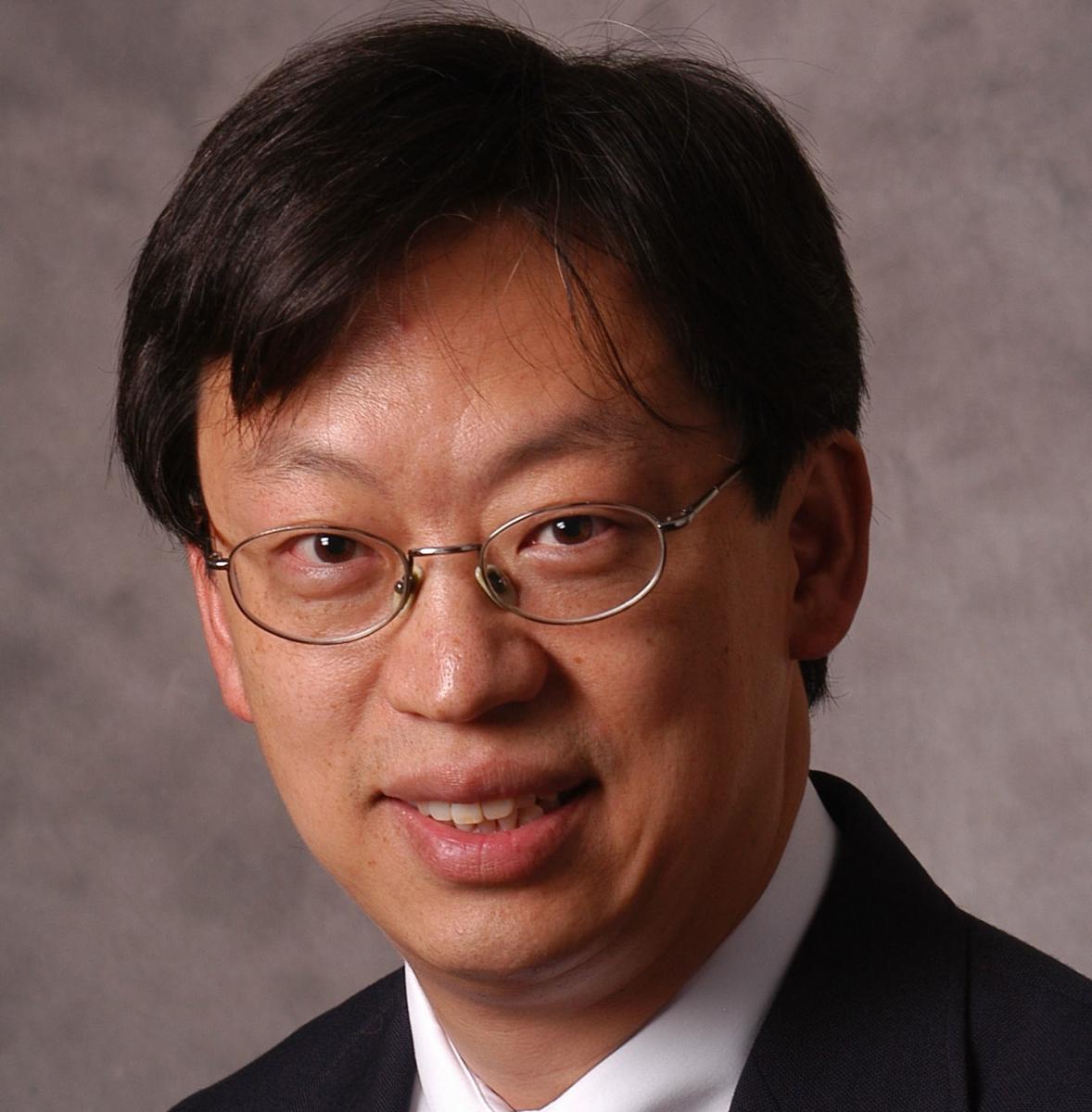
Title:
Motion, Heat, and Light: Joy of Industrial Collaboration
Abstract:
Industrial collaboration provides real world motivation and application, but also presents challenges: How to balance specific problem solving with fundamental methodology advancement? This talk will present some personal experience on industrial collaboration feeding and enriching a broad research agenda related to the management of motion, heat, and light. For motion: vibration suppression for the scanning mirror in laser processing led to our invention of Adaptive Scanning Optical Microscope (ASOM) for large field imaging. For heat: thermal management in electronic manufacturing led to our work in two-phase cooling and building thermal control. For light: energy efficient LED regulation led to our work in distributed lighting control and light-based entrainment of circadian rhythm. We will also discuss our distributed control and communication software architecture, Robot Raconteur, that supports the experimental implementations.
Bio:
John T. Wen received his B.Eng. from McGill University in 1979, M.S. from University of Illinois in 1981, and Ph.D. from Rensselaer Polytechnic Institute in 1985, all in Electrical Engineering. From 1981-1982, he was a system engineer at Fisher Controls. From 1985-1988, he was a member of technical staff at the Jet Propulsion Laboratory. Since 1988, he has been with Rensselaer Polytechnic Institute where he is currently the Head of the Industrial and Systems Engineering (ISE) Department. He is also a Professor in Electrical Engineering with joint appointments in Mechanical Engineering, and ISE. From 2005 to 2013, he served as the Director of a New York State sponsored interdisciplinary research center, Center for Automation Technologies and Systems (CATS). He also served as the Interim Director of the NSF Smart Lighting Engineering Research Center from June-Dec, 2009. Dr. Wen is a Fellow of IEEE.



